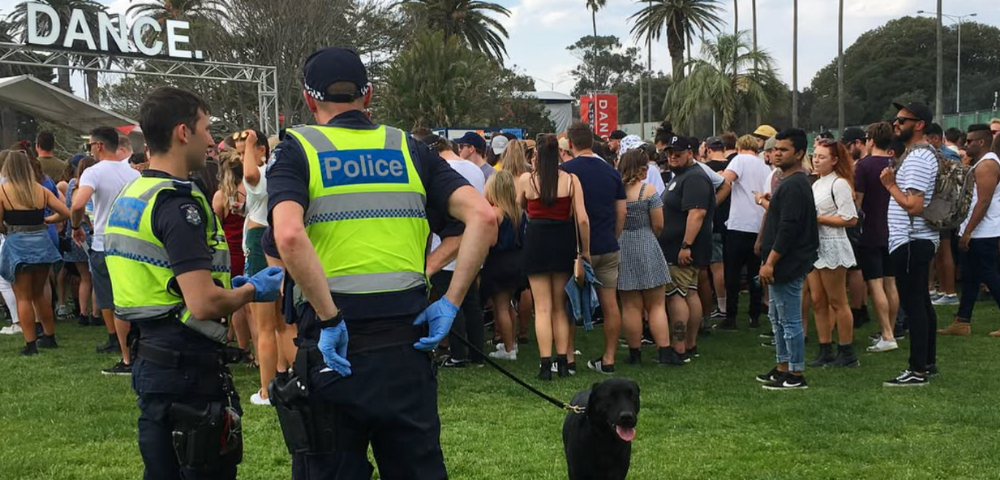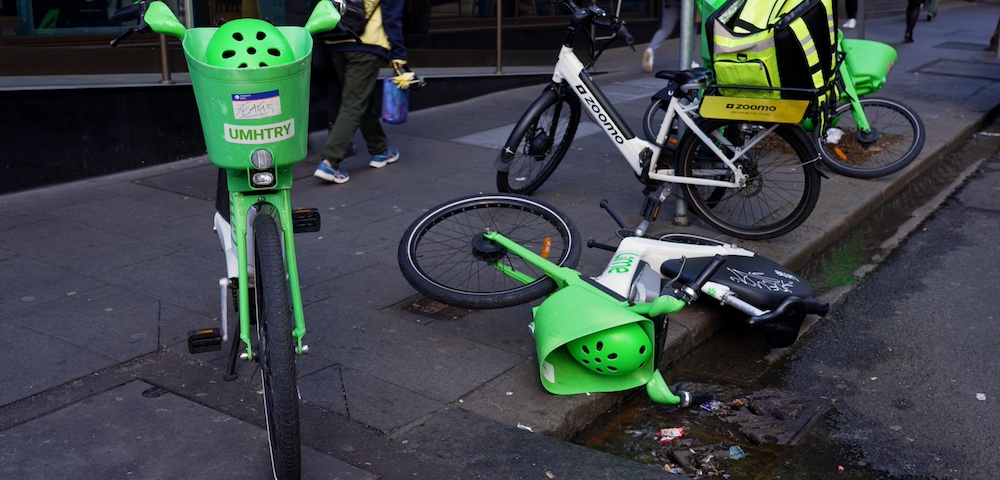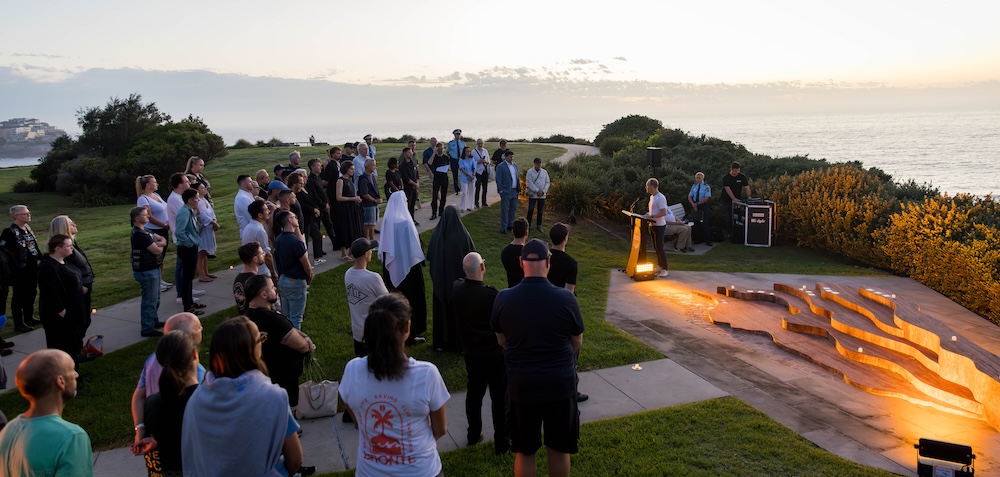

A report on addressing drug policy reform in NSW has outlined more than 50 recommendations, including calling for an end to strip searches and sniffer dogs at music festivals.
Last year, the NSW Government held the state’s second drug summit, 25 years after the historic 1999 Drug Summit, to seek “ideas, policies and strategies to reduce these harms”.
Over 550 individuals and 250 organisations engaged in the process of meetings held over four days in regional NSW and Sydney.
Among its 56 key recommendations, the report proposed scrapping the use of sniffer dogs and strip searching for suspected drug possession at music festivals.
The report highlighted that attendees felt specific police practices, including strip searching, drug detection dogs at festivals, and police attendance at overdose scenes, required strong reform.
Attendees strongly oppose strip searches
Strip searching for suspected personal drug possession in all settings was “strongly opposed”, with attendees citing evidence regarding its harmful impacts. Psychological trauma, particularly for vulnerable populations, was seen as a major harm and attendees questioned the practice’s effectiveness.
Additionally, health professionals emphasised strip searching caused “unnecessary harm” and “damages trust” between young people and law enforcement, creating a barrier to help-seeking behaviour.
A statement from an LGBTQI+ young male adult with lived experience of disability and drug use who chose to remain anonymous in the report criticised the current laws within the state, noting that they encouraged “unhealthy and dangerous behaviours because they introduce a conflict of interest when it comes to fully reaching vulnerable communities.”
“The people who are likely to experience the greatest harms are the people we are strip searching and arresting, because clearly the NSW Government’s strategy is to demonise and humiliate drug users. You can’t forcibly remove our clothes in public and then claim to encourage healthy behaviours,” they said.
Threat of arrest may lead to panic consumption of drugs
Many attendees at the Drug Summit expressed that the threat of detection and arrest could lead to panic consumption, which would also increase harm. Participants also emphasised that fear of police contact, including at overdose events, prevents people from accessing harm-reduction services and/or seeking medical help.
Several priority actions under the criminal justice system and policing in the report were outlined. Some of these include:
- Reform the Early Drug Diversion Initiative to extend eligibility criteria to address restrictions relating to possession of multiple drugs, criminal history and threshold drug quantities; limiting police discretion with an assumption of diversion for personal use quantities; and ensuring a clear monitoring and evaluation framework
- Expand the Drug Court to regional areas, prioritising the Far North Coast, the Central Coast and Wollongong, ensuring accompanying service infrastructure
- Strengthen diversion programs for young people, including by better utilising and reforming the Young Offenders act 1997 (NSW) and consider reinstating the Youth Drug and Alcohol Court of NSW
- Provide comprehensive harm-reduction training for NSW Police officers and other relevant first responders and equip them with naloxone to respond to opioid overdoses
Redfern Legal Centre supports ending strip searches and drug detection dogs
The Redfern Legal Centre welcomed the recommendation to halt the use of drug detection dogs and strip searches at festivals during the current trial of drug-checking services.
Supervising Solicitor at Redfern Legal Centre Sam Lee said in a statement, “To ensure community safety, strip searches and drug detection dogs should be banned permanently.”
“We need legislative change to make it clear that strip searches should never be conducted based on suspicion of minor drug possession—not just at music festivals or during the drug testing trial, but permanently. Evidence shows that these humiliating and intimidating practices do not make festivals safer; in fact, they often encourage risky behaviours, such as preloading,” Lee said.









